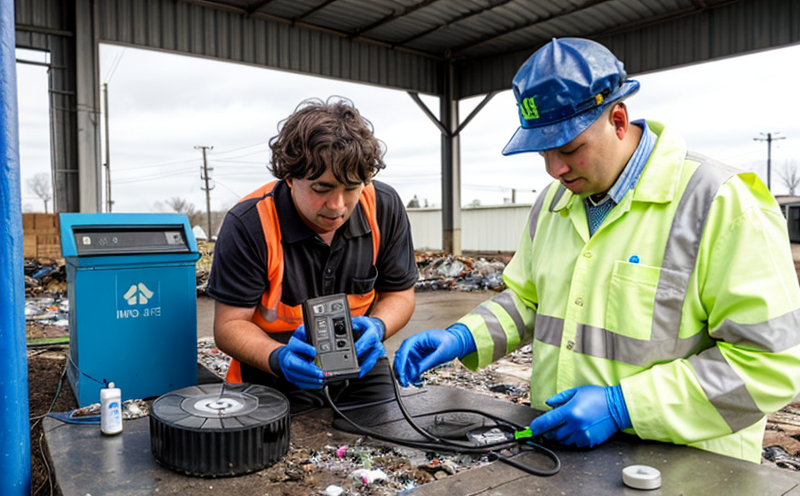IEC 62430 Environmentally Conscious Design of Electronic Products
The International Electrotechnical Commission (IEC) standard IEC 62430 specifies the environmentally conscious design criteria for electronic products. This service aims to ensure that electronic devices are designed with sustainability in mind, from their inception through to disposal and recycling stages.
The primary objective of this testing is to evaluate how effectively a product can be disassembled into its component parts, facilitating easier recycling at end-of-life. This not only contributes to reducing the environmental impact but also supports compliance with global regulatory requirements such as the Restriction of Hazardous Substances (RoHS).
The process involves several stages including preliminary design reviews, material selection assessments, and detailed disassembly analysis. During these stages, various parameters are measured, such as the ease of removing screws or fasteners, the accessibility of components for reuse or recycling, and the presence of hazardous materials.
For quality managers and compliance officers, this service provides critical insights into the environmental footprint of their products throughout their lifecycle. R&D engineers benefit from early-stage feedback on design choices that could impact recyclability. Procurement teams gain valuable information about supplier performance regarding sustainable practices.
The testing methodology adheres strictly to IEC 62430, ensuring consistency and comparability across different manufacturers and regions. The results are typically presented as a comprehensive report detailing the ease of disassembly scores along with recommendations for improvement where necessary.
By investing in this service early in the product development cycle, companies can significantly reduce costs associated with waste management later on. They also position themselves favorably within increasingly stringent environmental regulations and growing consumer demand for eco-friendly products.
- RoHS Compliance: Ensuring products meet global standards for restricting hazardous substances.
- Battery Recycling: Evaluating the design aspects that promote efficient battery recycling processes.
- Eco-Friendly Packaging: Assessing the recyclability and sustainability of packaging materials used with electronic devices.
- End-of-Life Management: Understanding how products can be safely handled at their end-of-life stage, promoting responsible disposal practices.
In summary, this service helps organizations navigate complex regulatory landscapes while fostering innovation towards more sustainable product designs. It is a proactive approach that benefits both the environment and business operations by minimizing waste generation and enhancing resource efficiency.
Industry Applications
The applications for IEC 62430 testing are extensive, spanning various industries where electronic products play a crucial role. For instance:
- Battery Manufacturers: Ensuring that batteries used in consumer electronics can be easily removed and recycled.
- Automotive Industry: Designing vehicles with components that can be efficiently dismantled for recycling purposes.
- Medical Device Companies: Facilitating the safe disposal of medical equipment at end-of-life, minimizing environmental harm.
- Consumer Electronics Firms: Improving product design to meet stringent sustainability requirements set by markets and customers alike.
In each case, IEC 62430 testing ensures that products are not only functional but also environmentally responsible throughout their lifecycle. This contributes significantly to reducing waste and promoting a circular economy approach.
Quality and Reliability Assurance
The quality and reliability assurance aspects of IEC 62430 testing are vital for maintaining high standards within the industry. By focusing on environmentally conscious design, we ensure that products not only perform well but also contribute positively to environmental sustainability.
This service ensures that every stage of product development—from concept to final assembly—is evaluated against stringent criteria outlined in IEC 62430. This includes rigorous testing protocols designed to identify potential issues early on, thereby reducing costly rework and delays later in the production process.
The detailed reports provided by our team enable clients to make informed decisions regarding design modifications needed for improved recyclability. Such insights are invaluable in fostering continuous improvement within manufacturing processes, ultimately leading to more reliable and sustainable products.
Customer Impact and Satisfaction
The impact of IEC 62430 testing extends beyond just the manufacturer; it also has significant implications for customers. By promoting environmentally conscious design practices, we contribute to a cleaner planet by reducing e-waste.
Customers increasingly value sustainability when purchasing electronic products. Offering such products demonstrates commitment to environmental responsibility and can enhance brand reputation significantly. Moreover, compliance with IEC 62430 helps companies avoid potential penalties associated with non-compliance with international standards or local regulations.
In summary, this service plays a crucial role in bridging the gap between technological advancement and ecological preservation, ensuring that electronic products serve both human needs and planetary health effectively.





